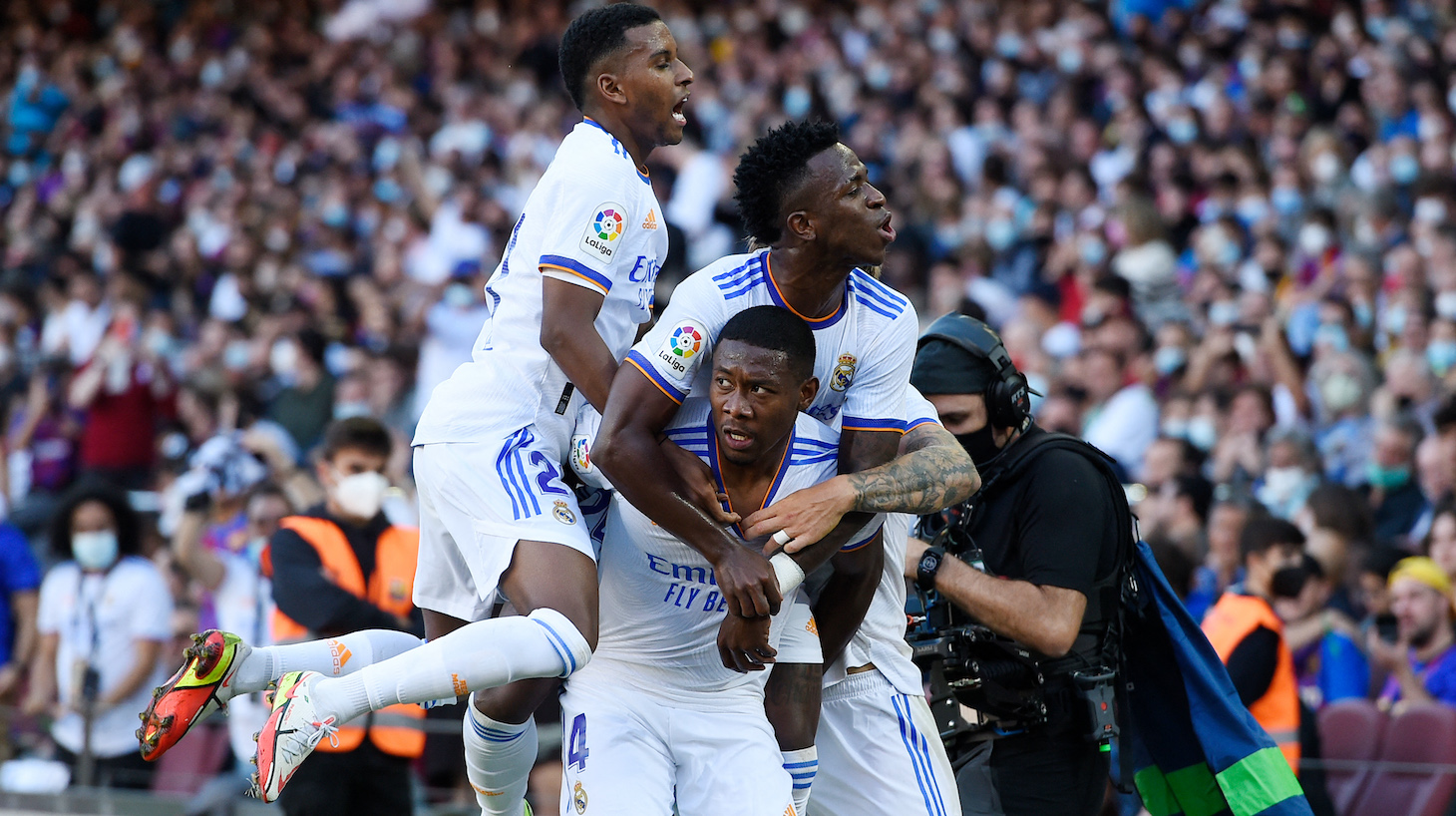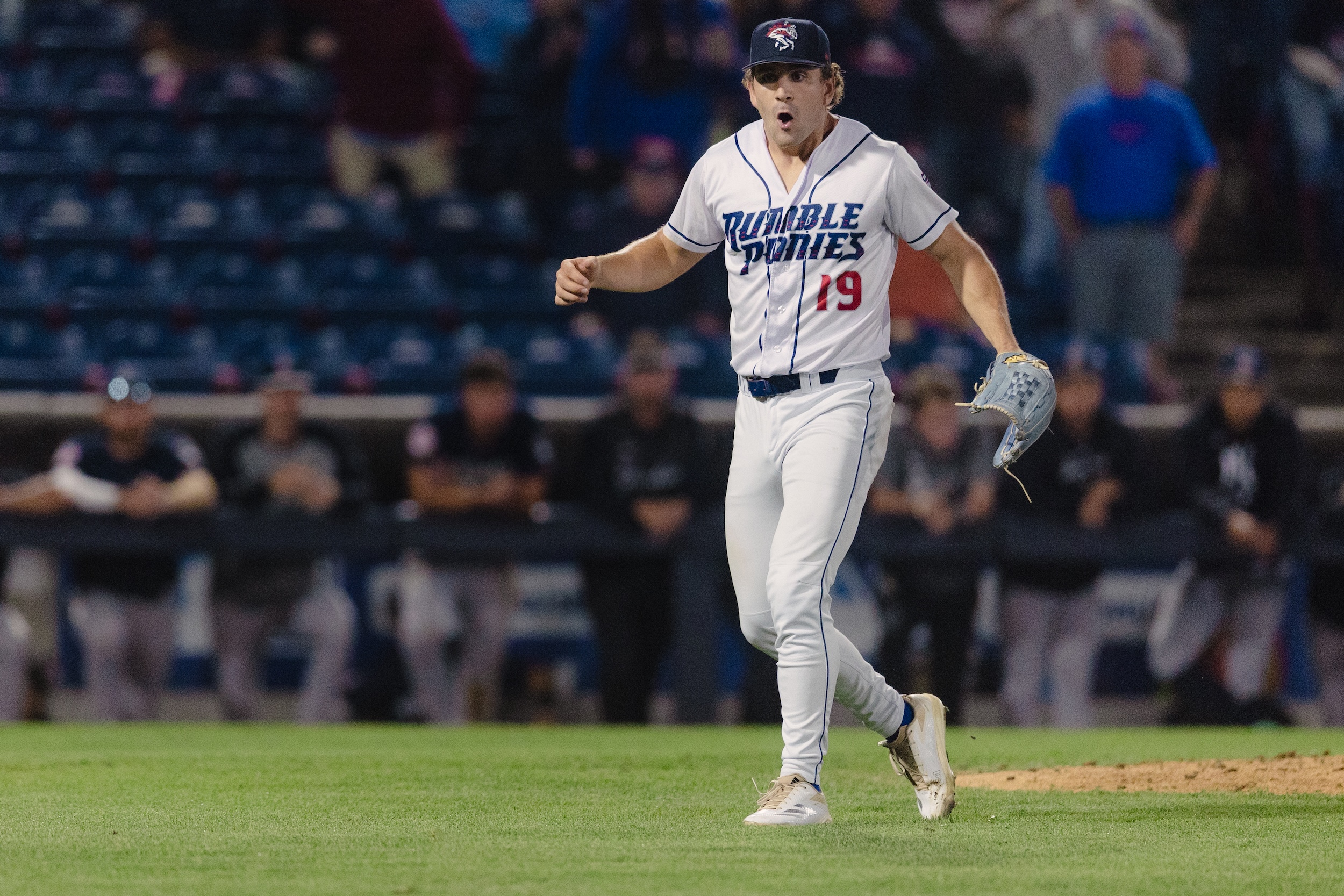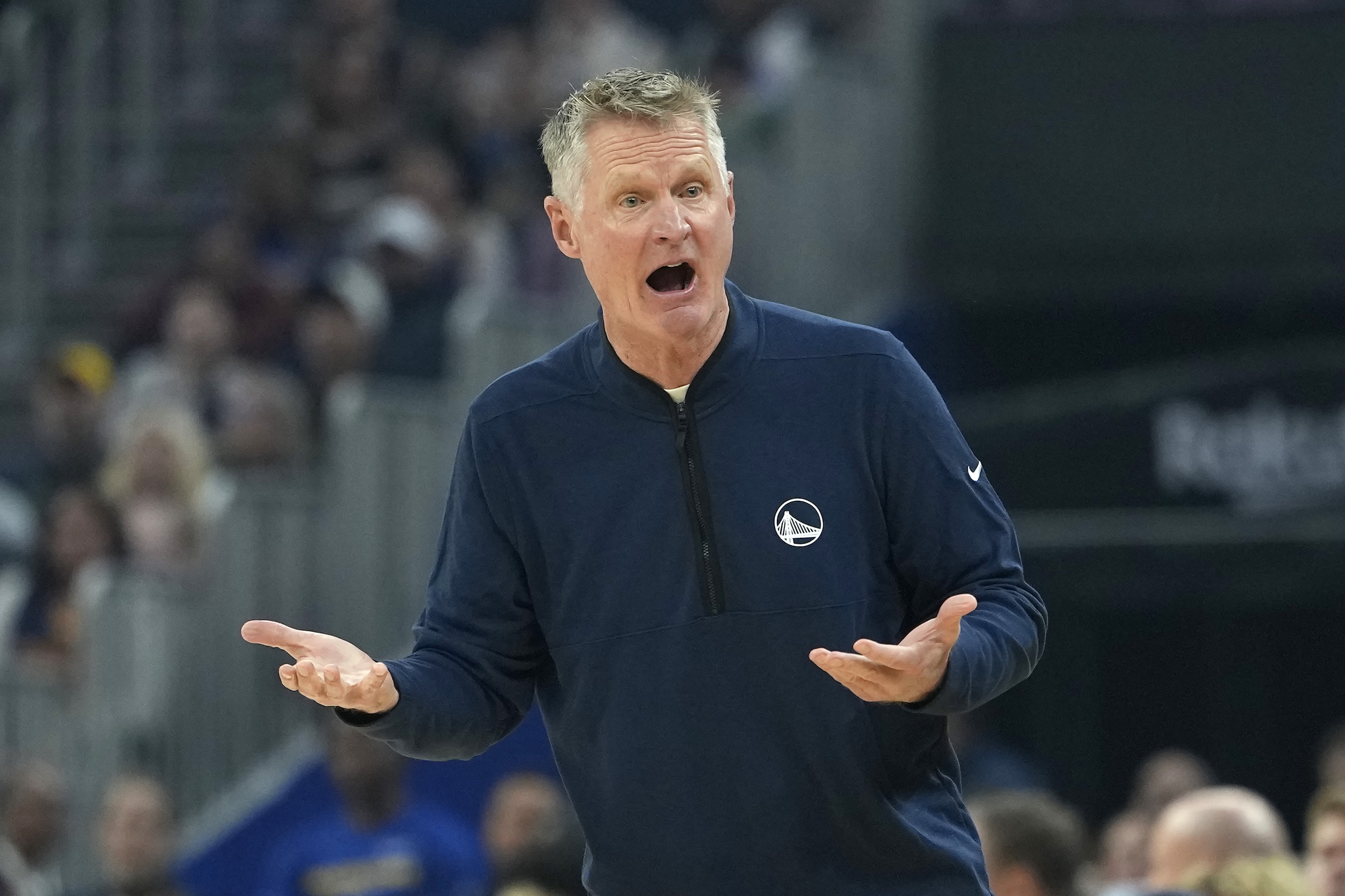Real Madrid and Barcelona are two clubs in transition. Both have lost several major, era-defining players in recent years, and both have suffered the expected struggles in trying to replace the irreplaceable. Because of that, the two teams are currently nowhere near where they once were, nor are either even particularly good at the moment. But while Sunday's Clásico was far from the clash of titans we've grown accustomed to over the past decade, it did serve as a nice opportunity for one club to prove it was further along in its rebuilding process than the other, thanks in large part to its success in filing the gaps left by the departed stars of old with perfectly capable substitutes.
The first couple minutes of the above highlights from Madrid's 2–1 win on Sunday are a tidy encapsulation of this. The video opens with two plays by Vinícius, who has assumed Cristiano Ronaldo's old post on Madrid's left wing. In the first instance, Vinícius dances past two Barça defenders deep out on the wing, then knifes into the penalty area before falling down, which the referee correctly adjudges was closer to a dive than a foul. On the second, the Brazilian flies through the heart of Barcelona's back line, races onto a Karim Benzema through ball that sends him into a one-on-one with keeper Marc-André ter Stegen, whom Vinícius proceeds to torture with a series of feints and cut-backs, only to eventually see his shot blocked and the line judge's flag raised for what was a clear offside earlier.
Neither of the two plays ended with a goal, but both demonstrated just how far Vinícius has come. It was evident even back when Real Madrid first signed Vinícius as a teenager that he was a special talent, but this season has been Vini's formal introduction as a star. From the moment he came to Spain, meeting Vinícius out wide and in space has been like facing a shark in open water. However, the closer the Brazilian got to the opposing goal, the more he'd shrink, until he'd hit the penalty area looking like a panicked little fish thrashing about, lashing in hopeless shots that more often found the upper deck of the stadium than the back of the opponent's goal.
All of that has changed this year. This Vinícius both thinks much quicker and has much more patience in the box, which, along with his newfound predilection for killer runs in behind, has unlocked his latent goalscoring threat. In just 12 appearances in all competitions, he already has more goals (seven) than he's ever scored in an entire season. Benzema is still Real Madrid's best player, but the Blancos' attack is what it is because of Vinícius.
Both of those first two Vini highlights demonstrated the new facets of his game—the bursting run in behind on the offside play, and his calmness to wait for the perfect moment to shoot in the box in both moments. Madrid's gameplan against Barcelona was notably conservative. The visiting team neither pressed hard and high nor sent numbers forward on counterattacks. Nevertheless, the next goal always looked nearer Madrid's grasp than Barça's, in large part because of what Vinícius could do almost all by himself. Óscar Mingueza will have nightmares after how Vinícius repeatedly terrorized him all game long.
The third play of the above match highlights shows Sergiño Dest coming agonizingly close to scoring. Dest is a good player who will soon be a great one, and his ability to stretch the field high and wide and contribute to attacks while playing as an out-and-out forward has been a big help during Barcelona's improved performances over the past week. That he has done so well playing as a right winger in a 4-3-3 while being a natural full back is a testament to his unique skillset and his enormous potential.
Nevertheless, Dest is a full back, not a forward. That he has had to play as a forward—taking the position most recently occupied at the club by Lionel Messi, no less—in recent matches is proof of how lost Barcelona still is after Messi's departure. A 20-year-old (American!) full back starting in El Clásico as a right winger and playing decently speaks very well of the player and is a damning indictment of the squad. And relying on an out-of-position full back to score the go-ahead goal in the aforementioned play is the perfect example of that fact.
Returning to the highlight video, the play immediately following the Dest miss is another telling one. There, you'll see David Alaba's opening goal, which gave Madrid an early advantage that they never looked in serious threat of giving up. Alaba is Madrid's hand-picked successor to Sergio Ramos, and on the goal, you could see why the Austrian is arguably an upgrade on the aging Spaniard. Alaba actually started the move that culminated in his goal with a fantastic tackle on Memphis at the crown of the Blancos' penalty area. Alaba read Memphis's loose touch wonderfully, and not only did the central defender take the ball back and then move it on quickly to start the counter, but he even ran the full length of the pitch to finish the play in the center forward position. It was the sort of play that shows why it's impossible to adequately encompass Alaba's influence with a mere positional term like "center back," so great and wide-ranging are his abilities.
By themselves, those highlights, the players who starred in them, and the former Clásico legends those current players were subbing in for go a long way toward explaining the difference between Real Madrid and Barcelona right now. Make no mistake: This was no masterclass from Madrid. It was, however, a safe and relatively untroubled performance, one that relied almost as much on Barcelona's well-established impotence than the power of the Madrid lineup as a whole. By the same token, the game was far from being Barça's worst outing of the season. Outside of the advantages Madrid enjoyed through Vinícius and Alaba, Barcelona was only rarely bothered by any other Blanco, and the team looked like a totally coherent and credible group for much of the game—at least up until the Blaugrana reached the final third, where they were completely devoid of creativity and ideas of either the individual or tactical variety. As a Barcelona fan, I can honestly say that, in spite of how utterly bland and uninspired as my team was, the game went much better than I had feared it might.
But that is the experience of following La Liga in 2021. Both Barça and Madrid—and, by proxy, the league as a whole—are shadows of their former selves. Madrid is better right now, and as such they are sure to challenge for the title until the very end. Barcelona is worse, but not by all that much. It would surprise no one if by the end of the campaign the Catalans are struggling to finish in the top four or if they're still somehow in the hunt for the league title.
Both teams have lots of good pieces to build around—just from those on the pitch today: Vinícius, Alaba, Militão, Mendy; Dest, Fati, Memphis, de Jong (not that one), Gavi—but neither is yet in a position to stand beside the teams that made the Clásico truly classic. That, more than anything, was what this edition determined—not which team had reached a certain destination, but which was a little further ahead in the race there.






